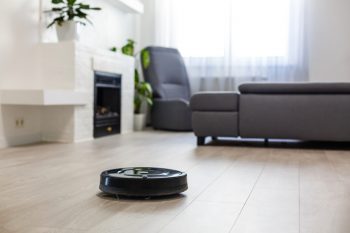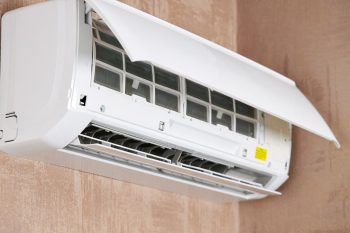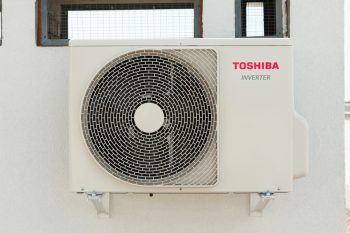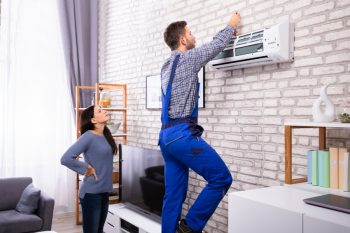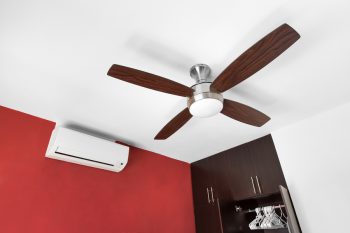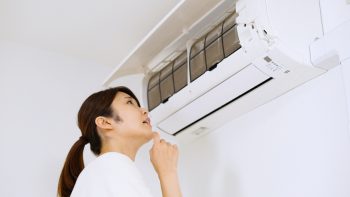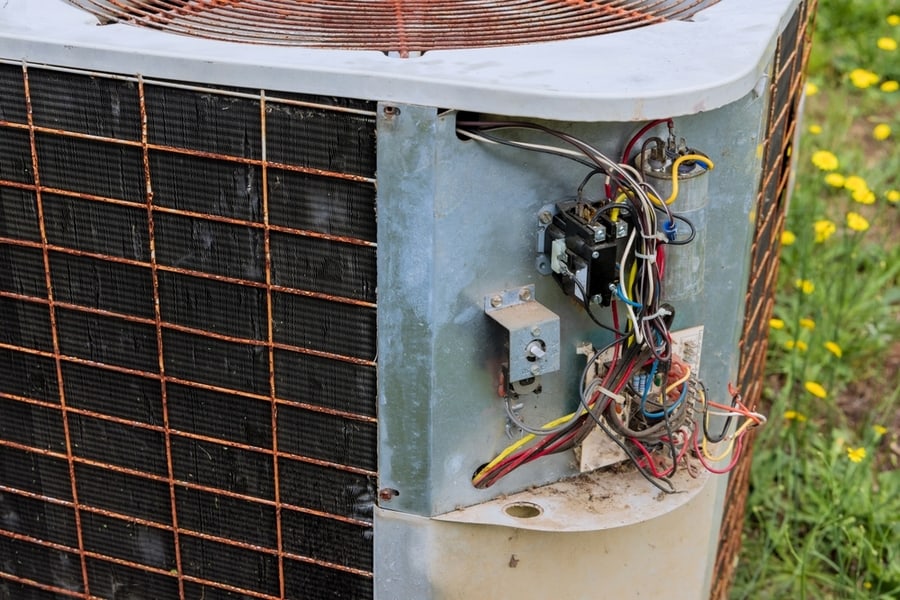
Air conditioners absorb heat from ambient air in your home by way of a substance called a refrigerant. This chemical is pushed through the condensers to achieve the process of temperature exchange.
The component that moves and circulates this refrigerant is called a compressor. Without a compressor, refrigerant remains stagnant, and cooling doesn’t occur.
So you might say that the heart of your air conditioner is the compressor. That’s why it’s important to keep your compressor in check so you can stay on top of potential damages.
But what exactly are the signs of a failing, bad home AC compressor?
- Unusual sounds can indicate that your compressor is failing.
- Warm air from the AC’s vents may point to a malfunctioning compressor.
- Even when the unit is turned off, excessive leaking may indicate a break somewhere in the system, including the compressor component.
- A sharp increase in electrical bills typically results from a failing, inefficient AC compressor.
Compressor repair and replacement can cost hundreds (and even thousands) of dollars. So before the problems progress any further, you’ll want to nip them in the bud.
Fortunately, a compressor will often show signs before it completely gives up.
Signs Your AC Compressor Is Failing
1. Unusual Sounds
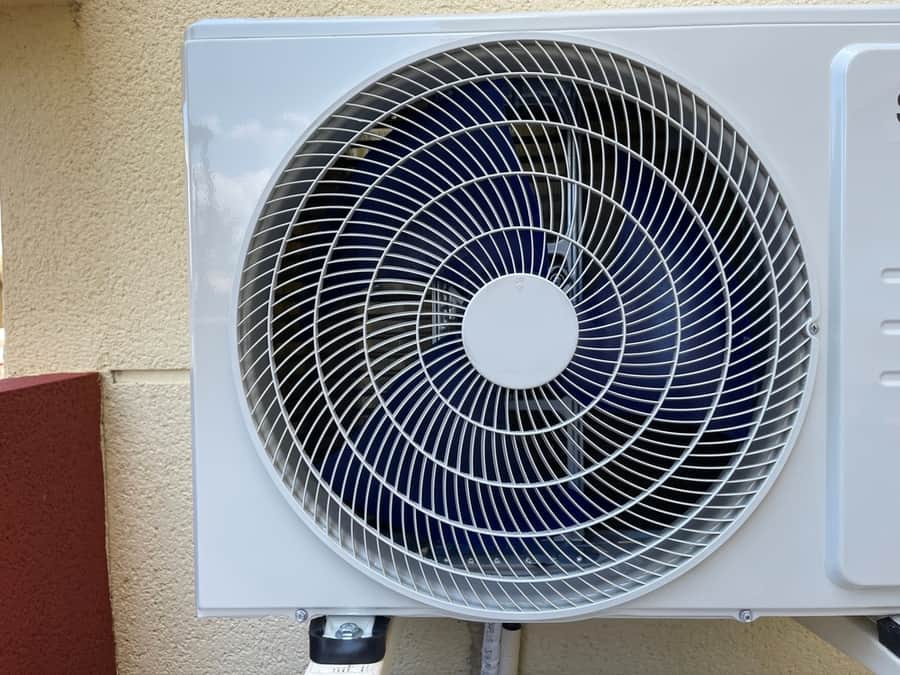
Aside from the occasional humming noise, your air conditioner should remain relatively silent. Some models — especially window-type air conditioners — tend to produce more noise. But the monotonous thrum will fade into background noise a few minutes after turning the unit on.
Other, more jarring, unusual noises should catch your attention. For example, rumbling, rattling, clanking, and banging noises indicate a potential problem with the compressor.
These sounds might not persist for the entire duration that the AC is turned on, and your unit could stay fairly quiet for extended periods. But if you hear these unusual noises more than once, it may be time to check your AC.
2. Warm Air
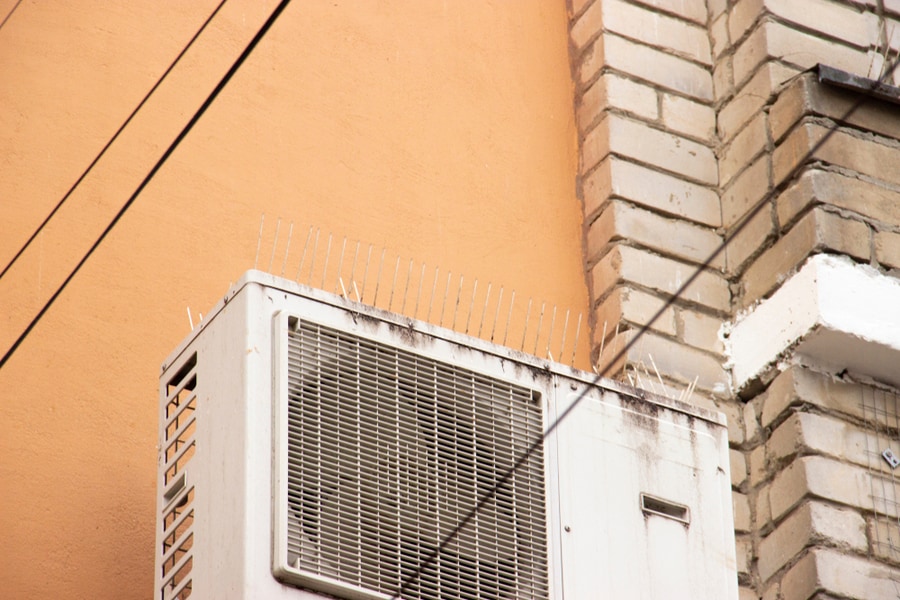
Refrigerant changes from liquid to gas to absorb heat. Once it collects heat from ambient air, the compressor pushes the refrigerant through its system to expel the heat outside. That’s why when your compressor fan turns, it releases cool air.
A compressor will struggle to move the refrigerant through the unit when it fails. So instead of releasing cool air, it expels the same warm or hot air it tried to absorb.
A quick test you can do to check for this issue is simply holding your hand in front of the AC’s vents to check if it’s releasing warm air.
3. Condensate and Moisture Leaks
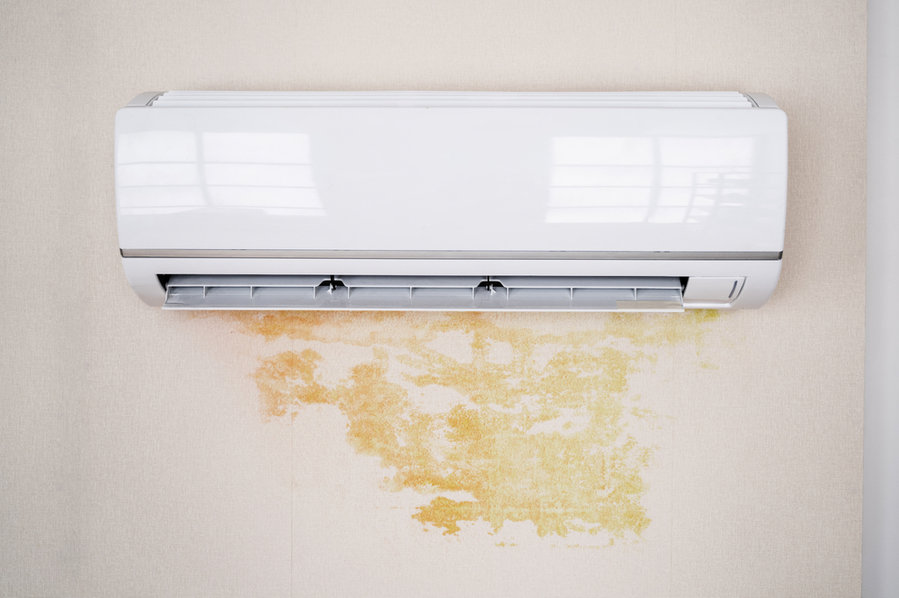
Just to be clear — it can be normal for your air conditioner to leak water. When your thermostat is low, and the conditions outside are warm, your AC can produce condensation, which can pinnacle underneath the unit’s exterior.
However, a leak may indicate a more serious problem in some cases. For example, if the puddle of moisture underneath your air conditioner’s external unit doesn’t seem to dry up even after the AC has been turned off for a while, you might have issues with refrigerant levels.
This can point to a leak in the system or a problem with your compressor.
4. Sudden Increase in Electricity Bills
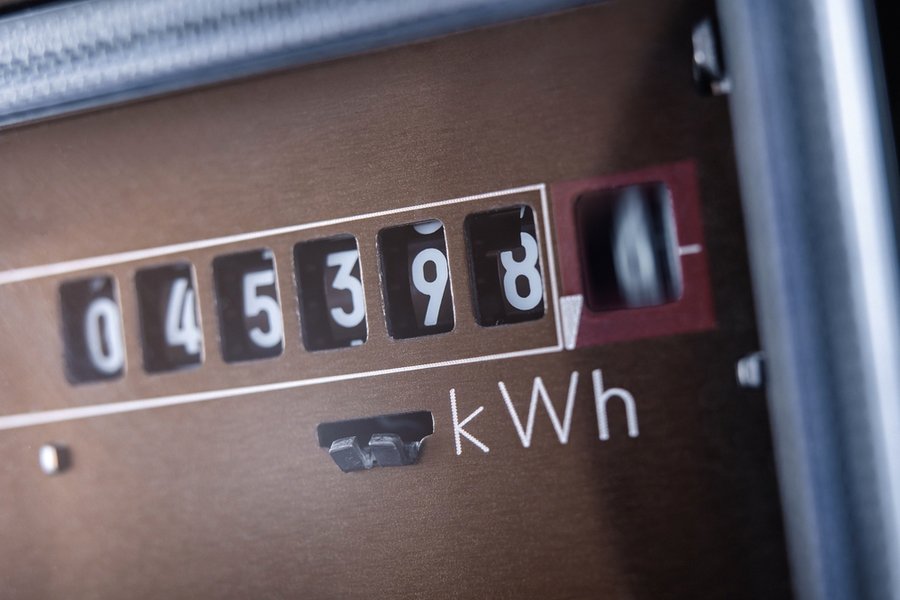
Most air conditioners today use inverter technology that helps reduce electricity consumption. However, if your compressor is going bad, your air conditioner might use more electricity than normal.
A sudden increase in your electricity bill may point to compressor failure. As your AC unit works to cool your home, the broken or malfunctioning compressor works double time to achieve your desired thermostat.
Thus the entire unit ends up using more energy to achieve the same amount of work it used to.
Call a professional HVAC specialist at the first signs of compressor failure. Resolving the issue before it worsens can save you from expensive repairs and replacements.
Summary
A compressor plays a big role in keeping your air conditioner functional and efficient. So if you suspect that there might be something wrong with your AC compressor, act fast.
Paying attention to the signs of a possible compressor failure can spare you from spending money on repairs.
Frequently Asked Questions
How Much Does It Cost To Replace an AC Compressor?
Several factors affect the cost of AC compressor replacement, including the size, make, and model of your unit and location. Replacing your air conditioner’s compressor can cost between $800 and $3,000.
Can a Compressor Be Repaired?
Yes, there are some instances when an HVAC specialist may be able to repair your existing compressor. However, if the damage is significant, it may be more economical to replace the part instead.
Repairing doesn’t always work and may cause efficiency and performance problems down the line.

